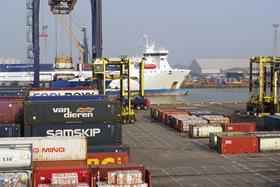
Increased volumes of imports are causing delays to inspections by both Port and Plant Health agencies with importers picking up demurrage costs and losing orders, some suppliers have said.
One importer told FPJ he is paying between £1,000 and £1,500 per container to cover the costs of inspection and demurrage. “As it comes through customs they [Port Health] decide whether to inspect, and once they get clearance, Plant Health gets involved.
“They’re supposed to take 24hrs to make a decision but instead it’s taking up to three days, and that’s before the inspection. It’s killing us. We are losing orders and having to sell elsewhere just to shift the volume.”
Countries of origin affected seem to be Egypt, Morocco, as well as South Africa, India, Chile and Argentina, the source said, with the ports of Tilbury and London Gateway cited as having particular delays.
A spokesperson for the Animal and Plant Health Agency (APHA) said the agency is not aware of any issues in the system.
“Our service standard states that, providing our Plant Health and Seeds Inspectors are given a minimum of three working days’ notice of consignments arriving, those consignments are selected for inspection, or released, within one working day.
“Selected consignments are then inspected during normal working hours once they reach the approved inspection facility.”
Tom Slattery, of clearing agency Hellmann Perishable Logistics (HPL), said: “This year we’re seeing a rise in Port Health examinations. London Gateway in particular seems to have cracked down.
“Defra and Plant Health do inspections at the weekend, but Port Health is the busiest I’ve seen it – I’ve never seen anything like it. They missed their quota last year so now maybe they’re making up for it.'
Slattery said customers “don’t understand how long it takes”, said it requires at least three days to look at the application before even doing the examination.
“The applications aren’t submitted quick enough in some cases – we need the paperwork from the supplier before we can submit an application,” he added.
“I think more volumes are coming through and that’s the issue. The port can only manoeuvre certain volumes.”
Mike Smart, of Liverpool importer Alfred Price, said the company has seen delays on containers of plums from Chile this week, but the issue seems to have been isolated. “On this occasion it was Port Health who kept them over. Defra themselves are very cooperative,” he said.
Andrew Gilding, of Liverpool importer Peter Gilding, said the company is seeing no real delays at the moment, but expects issues when peak imports begin around May-June.
“We’re seeing increased volumes from the southern hemisphere year on year and that creates a strain on infrastructure, which causes delays,” he said. “They need the right resources and staff to check containers, and that isn’t always the case.
“When the issues start we usually have enough stock in storage so we can use that. At the beginning of the season is when we might miss sales as a result,” he added.
Gilding said citrus seems to cause the most problems, especially towards the end of the season, and suggested more information about growing conditions in countries of origin would help inspection teams choose which containers to hold back. “That way they wouldn’t waste time on containers with no problems,” he added. “They are quite rigid. A bit of flexibility would be nice.”
The APHA spokesperson added: “We would ask that any importers experiencing problems contact the local Plant Health and Seeds Inspector responsible for that port.”



